TOP GEMOLOGY SCHOOLS & TRAINING
HOW DO YOU BECOME A CERTIFIED GEMOLOGIST?
This post contains affiliate links. If you use these links to buy something I may earn a commission. Thanks! As an Amazon Associate I also earn from qualifying purchases.

While basic gemology training has its earliest origins in the early 19th century, the National Association of Goldsmiths set the first qualifications for gemologists in the year 1908 with the start-up of their Gemmological Committee in Great Britain.
After some time, this early Committee re-named itself the Gemmological Association of Great Britian; and, today, it is a prestigious educational authority and accreditation organization that sets the standards for gemology courses all over the world.
The first person whom graduated from the association’s original diploma program in the year 1929 was a man by the name of Robert Shipley.
Shipley took his training; and, some time later, he began the Gemological Institute of America and the American Gem Society. With the advent of these organizations, many schools began teaching certified gemology programs all around the globe. Following are some of the best gemology schools in the country, today.
California
California has some of the biggest and top notch Certification Companies in the US.
Let’s take a look at them…
Gemological Institute of America
The Gemological Institute of America, or GIA, in Carlsbad and New York, began in the year 1931; and, today, it is the most respected authority pertaining to precious gems of many varieties. The institute, which holds accreditation with the Accrediting Commission of Career Schools and Colleges, not only has two institutions in the US, but it also boasts over a dozen centers all over the globe, as well. Those people, who would like to learn additional information pertaining to the institute and its excellent gemology training, can contact them at-760-603-4000, or they may choose to write to them at-5345 Armada Drive, Carlsbad, California, 92008. They can also find valuable information within the institute’s website at http://www.gia.edu.
GIA offers many terrific programs for people interested in the field of gemology. Some of the programs offered by the institute include graduate of pearls, graduate gemologist, applied jewelry arts, graduate of diamonds, graduate jeweler, graduate in colored stones, and accredited jewelry professional. Those students, who choose to enroll within the graduate gemologist program, will need to complete the following programs – specific course work – Colored Stone Grading, Diamond Grading, Gem Identification, Pearl Grading, Applied Jewelry Arts, Advanced Stone Setting, Basic Repair and Setting, Casting, Comprehensive Wax Techniques, Intermediate Repair and Setting, and Mold Making.
The graduate gemology program’s cost, as of 2011, is $17,400 for on-campus training and $7,830 for distance education. These fees, however, do not include such things as application fees, housing, various course materials, living and transportation expenses, and other applicable fees. Some of the other fees students may need to incur are a $35 application fee, workroom fees ($35 per half-day and $70 per full-day), a $650 per week fee for repeating any on-campus course work, a $75 fee for add/drops of courses, a $5 2nd transcript fee, a $40 certificate replacement fee, a $45 diploma replacement fee, and books and materials – $1,630. The institute does offer financial aid for those students whom qualify.
Graduates of the gemologist program will earn the following-a graduate gemologist diploma, a graduate diamonds diploma and a graduate colored stones diploma. For them to graduate and receive their diplomas, they must meet the requirements of the gemologist program. These requirements include the following – successful completion of all coursework with a C or above, payment in full of all tuition and other fees, diamond essentials final exam, 100% completion of all coursework/lab work and exams, diamond grading exams, diamonds written exam, colored stones essentials final exam, colored stones written exam, gem identification exam, pearls written exam, and jewelry essentials final exam.
California Institute of Jewelry Training
The California Institute of Jewelry Training, located in Carmichael, is the US gemology teaching center for the Canadian Gemology Association. The institute has several fabulous jewelry training programs including that of gemology. Those people, who would like to study within the institute, can find out how to enroll by calling – 800-731-1122 or by writing to the following address-5805 Windmill Way, Carmichael, California, 95608. They can also read all about the institute online at http://www.jewelrytraining.com.
Students in the gemology program will need to complete the following course work-Nature of Gemstones, Elementary Crystallography, Distinguishing Between Natural/Synthetic and Imitation Gems, Nature of Light and Color, Properties and Identification Techniques of Gemstones, Fashioning of Gems, Organic Gems, Physical and Optical Properties of Gemstones, and Identifying Gem Treatments and How They Affect Value. They will also be instructed on how to use the tools necessary for the trade including such tools as Carat and Specific Gravity Balance, 10X Loupe, Polariscope, Microscope, Refractometer, and a Spectrascope.
While the fees for the program may vary depending upon a student’s unique circumstances, the typical cost of the program for a diploma-seeking resident is $5,895. This fee includes all course work, the gemology textbook, a basic gem-testing kit, exam-preparation training, and membership in the Canadian Gemological Association. Additional fees include $595 for exam-preparation training and a $150 registration fee. After students complete their programs, they will need to complete two exams to earn their Diploma in Gemology and Fellowship in the Canadian Gemological Association, or FCGmA.
International Gem Society
Located in Hornbrook, the International Gem Society has a first-class, online gemology program for those people who want to work in the field. If people would like to find out how to register for the program, they can email the society at-service@gemsociety.org or write to them at-Post Office Box 66, Hornbrook, California, 96044. They may also choose to visit the society’s website at http://www.gemsociety.org/.
The only requirement to enroll in the gemology program at the society is to register as a member and pay a $59 membership fee (as of 2011). Students will also need to pay a $30 grading fee per section and a $200 refundable deposit for their gemstone kit.
Some of the areas of study within the gemology program include the following-Introduction to Gemology, Gem Formation, Gem Cutting Terms, Classifying Gems, Mineral Habits, Identifying Gems, Gemstone Treatment and Enhancement, Tools of the Gemologist, The 10X Loupe, Identifying Synthetic Gemstones, Identifying Synthetic Diamonds, Testing Procedures, Refractive Index, Testing for Surface-Treated Gems, Specific Gravity Testing, Ultraviolet Testing, Introduction to Grading Gems, Evaluating Cuts, Grading Set Stones, Recutting Diamonds and Colored Stones, Evaluating Color, Clarity Grading for Colored Stones, Distinguishing Diamonds, Clarity Grading Diamonds, Color Grading White Diamonds, Appraising Opals, Identifying Inclusions, and Radiation and Treatment of Gemstones.
Jewelry Arts and Design College
Located in Los Angeles and approved by the Bureau for Private Post secondary Education, the Jewelry Arts and Design College offers the following phenomenal training programs-graduate gemologist, graduate jeweler, jewelry design, metal arts, and wax techniques/casting and mold making. Prospective gemologists can contact the college at-213-738-7700, or they may choose to write to the college at-2975 Wilshire Blvd., Suite 650, Los Angeles, California, 90010. They can also find the programs online at http://jadcollege.com (now calstoneuniversity.com).
For people to earn their certification as a graduate gemologist, they will mainly study within three key areas: diamonds, colored stones I and colored stones II. Some of the lessons included in the program are as follows – The Four Cs of a Diamond, Grading Diamonds, Gemological Equipment Usage, Finding Plot and Grade Clarity, Proportion Grading and Light Effects, Optical and Physical Properties, Treated and Fancy Color Diamonds, Diamond Simulants, Importance of Cuts When Buying and Selling, Diamond Handling, Promoting/Advertising and Displaying Diamonds, Color Descriptions in Colored Stones, Formation of Gems and Their Contents, Color and Value of Gems, Testing Gems and Jewelry, Cuts in Colored Gemstones, Grading Translucent and Opaque Gems, Cabochans/Carving and Engraving, Buying and Selling Colored Stones, Buying Loose Stones, Enhancements, Cutting Styles, and Synthetics.
The graduate gemologist program at Jewelry Arts and Design College is approximately 600 hours-long, or 20 weeks. The fees for the program, as of 2011, are as follows-tuition fee-$12,900, materials and textbooks-$1,328, application fee-$25, and a registration fee of $200 ($300 for international students).
People, who want to attend the college, will need to meet with an admissions representative to discuss their educational goals and attend a tour of the school. If necessary, they will also meet with a financial representative to discuss any financial aid they may need. They will need to supply the college with their high-school diploma or equivalent, as well. They must also submit a brief essay describing how they would like their training to help them with their long-term goals. While a portfolio is not a requirement for admissions, the college recommends that applicants submit one. Finally, all new students must attend an orientation seminar.
Santiago Canyon College
Located in Orange and accredited with the Western Association of Schools and Colleges, Santiago Canyon College offers both a certificate program and an associate’s degree program in gemology. Those people, who would like to learn the application procedures of Santiago Canyon, can call them at-714-628-4900 or write to them at-8045 East Chapman Avenue, Orange, California, 92869. They can also find the information they need within the college’s website at http://www.sccollege.edu.
Students, who choose to pursue an associate’s degree in gemology, will need to complete the following basic education course work-Culture and Civilizations I and II, Science course with lab, Fine Arts elective, English, Philosophy, Diversity elective, Foreign Language elective, and Mathematics.
They must also complete the following program-specific course work-Introductory Colored Stones, Advanced Colored Stones, Diamonds, and at least two of the following-The Jewelry Profession, Antique and Period Jewelry, Appraisal Theory and Practice, and Pearls. The tuition fees for the program, as of 2011, are $1,270 per semester. This includes regular tuition and books. It does not include transportation, housing or living expenses.
New York
New York is another great spot for some of the biggest Certification Institutes as well…
European Gemological Laboratory
European Gemological Laboratory, or EGL, is a world-wide, prestigious institution, recognized all around the globe for their excellent services in gemology. While most of their laboratories are located around the world in such places as London, Paris, Hong Kong and Tel Aviv, they do have labs in New York and Los Angeles, as well.
Some of the exemplary services offered by the laboratories of EGL include gemstone certifications, laser inscriptions, online verifications and training. The training offered by the laboratory, all over the world, includes that of graduate gemologists and graduate diamond graders.
The New York and Los Angeles labs offer educational brochures pertaining to the four Cs of the trade-cut, clarity, carat and color. They also offer various educational seminars for consumers and persons in the gemology trade. Some of the fantastic seminars they typically offer include gem appreciation, all-day diamond lectures, hands-on gem training, and hands-on gem equipment training.
If people would like to learn additional information pertaining to training or certifications, they can contact EGL at-972-3.752.84.28 (Israel), or they may write to them at-23 Tuval Street, Suite 112, 52521 Ramat Gan (Israel). They can also visit the EGL website at http://www.eglusa.com/lab-reports/. They can contact the New York laboratory for additional information at-212-730-7380, or they may write to the lab at-580 5th Avenue, 27th Floor, 10036. The website for the US facilities is http://www.eglusa.com/.
International Gemological Institute
Located in New York and Los Angeles and accredited by the Better Business Bureau, the International Gemological Institute, or IGI, offers superb training programs in pearls, colored stones, polished diamonds and rough diamonds. Those people, who would like full details on the programs offered by IGI, can contact the New York institution at-212-753-7100, or they can write to IGI at-589 Fifth Avenue, New York, New York, 10017. They can also find essential information online at http://www.igiusa.com/. The institute offers online and correspondence courses to persons in the US.
The polished diamond long-distance course involves the following areas of study-Diamonds Today, Mining and Recovery, Rough Diamond/Its Structure and Growth, Physical Properties, Optical Properties, Equipment, Clarity Grading, Color Grading, Cut/Proportions, Finish Grade, Fancy Shapes, Fancy Colors, Simulants, Recutting, and Historical Background. Students, who complete this course, will earn an IGI Polished Diamond Long Distance Diploma. The tuition fee for this course, as of 2011, is 295 plus shipping fees.
Tennessee
Tennessee has the DCA…
Diamond Council of America
Located in Nashville, Tennessee and accredited with the Distance Education and Training Council, the Diamond Council of America, or DCA, offers superior training in gemology. Some of the outstanding courses they offer include Advanced Jewelry Sales, Colored Gemstones and Diamonds. If people would like to find out full details on any of these distance courses, they can contact DCA at-615-385-5301, or they can write to the council at-3212 West End Avenue, Suite 400, Nashville, Tennessee, 37203. They can also visit the DCA website at http://www.diamondcouncil.org. The Diamond Council of America, founded in 1944, offers certificates to students who complete their distance courses.
Texas
Texas has some great Certification Companies as well…
International School of Gemology
p>
The International School of Gemology, located in San Antonio, Texas and accredited with the Better Business Bureau, offers phenomenal training for prospective gemologists. If people would like to find out about the superb programs offered at the International School of Gemology, they can call them at-210-877-5816, or they can write to their mailing address at-8925 Brae Vista, San Antonio, Texas, 78249. They can also learn all about the school and its programs by visiting their website at http://www.schoolofgemology.com.
The International School of Gemology, member of the World Gem Society, offers first-class training for those people who want to work within the field of gemology. The excellent programs they offer are as follows-registered gemologist appraiser program, registered gemologist program and registered gemologist appraiser for professionals program.
Those students, who choose to enroll in the registered gemologist appraiser program, must pay a tuition fee of $2,495 (as of 2011). This fee includes an eight-course, in-home instructional package, a gem equipment package, and a 15-piece set of gemstones. Students, who complete the program, will receive a diploma as a registered gemologist appraiser.
The gem equipment package includes all of the materials that students will need for their program. These materials include all of the following-microscope, polariscope, refractometer, polarizing filter, RI liquid, diffraction grading spectroscope, calcite dichroscope, lighted MM gauge, gemstone trays, polishing cloths, fifteen gemstones, and a 220v equipment set.
The school provides instruction through online courses, CDs (PDF Adobe Reader) and instructional videos. The courses included within the program are as follows-Jewelry Insurance Appraisal, Introduction to Watches, Identification of Synthetic and Treated Gemstones, Pearls course, Colored Gemstone Grading, Diamonds course, Colored Gemstone Identification, and Evaluating Damaged Jewelry. Students will receive a certificate after they complete each one of these classes. Students will also need to complete a gem identification exam and an online final exam before they can earn their diplomas.
Paris Junior College
Located in Paris, Texas and accredited by the Commission on Colleges, Paris Junior College offers a terrific certificate program in gemology for people who want to work in the field. If people, in the Paris district, would like to learn how to enroll within the college, they can call them at-903-785-7661, or they can visit their website at www.parisjc.edu/. They can also request a program brochure by writing to-2400 Clarksville Street, Paris, Texas, 75460.
Paris Junior College’s Texas Institute of Jewelry Technology offers an outstanding certificate program in gemology consisting of the following course work-Learning Frameworks, Fundamental Gemology I and II, Intermediate Gemology, Advanced Gemological Practices, Applied Jewelry Practices, and Capstone Experience. This is a one semester-long program, and students must pass all of these courses with at least a C.
Students will need to pay a $100 deposit to reserve their position in the program, which the school will apply towards their tuition. Tuition fees for the college, as of 2011, are as follows-$877/in district, $1,404/out of the district and $2,169/out of state and international. These fees do not include such things as housing, transportation and living expenses. There may be additional fees, as well, depending upon the student’s unique circumstances.
Washington
Washington gives us another great Institute…
Northwest Gemological Institute
Located in Bellevue, Washington, and a member of the American Gem Society, the Northwest Gemological Institute offers incredible courses for individuals who want to work in the field of gemology. Those people, who would like complete details on the registration process for any of the courses at the institute, can phone them at-425-455-0985 or write to them at their mailing address-10801 Main Street, Suite 105, Bellevue, Washington, 98004. They can also visit the institute online at http://nwgem.com/blog.
Some of the extraordinary courses that the institute offers are as follows-Diamond Grading ($495), Gemstone Identification I and II ($495), Gemstone Evaluation ($295), Ted’s Tucson Tour ($395), Pearl Stringing ($295), Vintage Jewelry ($495), Pearl Evaluation, Antique Jewelry, Opals, How to Buy a Gemstone, Precious Metals, Jade, Fine Timepieces, and Under Washington (identifying and unearthing minerals), Gemology Basics ($875), Gem ID Package ($875), and Power Gemology ($1,195). For all tuition prices and fees, applicants need to call the above number.
What Exactly Does a Gemologist Do?
Gemology is the science of studying precious gemstones; and the trained professionals, whom conduct this studying, are gemologists. The main duties of gemologists are to identify gemstones and to grade, certify and appraise them. However, it is not always as easy as it sounds, and they have many more jobs that they perform.
In many cases, these certified professionals are able to identify precious stones simply by looking at them; however, in some cases, this is not possible for them to do. One such example, is when two stones look extremely identical, such as aquamarine and blue topaz. Gemologists will need to perform several tests on the stones to determine their identity. Typically, one test will only provide the gemologist with indicators and is not enough to identify the stones completely.
After gemologists identify the stones, they may then analyze them and grade them. The grading process and report are based on such things as the gem’s color, cutting properties and clarity. Grading results can vary from one gemologist to another, as there are varying grading systems they may use. Another job of these professionals is to appraise gemstones. They accomplish this by polishing the stones and determining whether they are natural or synthetic. This will tell them how much they may be worth.
What Does it Mean to Certify a Gemstone?
There are benefits to having gemstones certified, with the largest benefit being that people are ensured that the stones in question are, indeed, authentic. In most cases, gemological facilities use at least two qualified gemologists during the evaluation and grading process. This ensures accuracy. Certification allow people to insure their precious stones for what they really are. Without certification, they would not know what their stones are or even if their stones are genuine or authentic.
People, who want to buy or sell gemstones, often have them appraised and/or certified as well. While both of these terms are often confused, and people think that they have the same meaning, they are two different processes. In a certification process, a gemstone lab will grade the stones on such things as cut, clarity, size and color; however, certifications do not determine the stone’s monetary value. Certifications only determine the overall quality of the gem.
Appraisals versus Certificates
While appraisals are not as extensive as certifications, appraisals can determine the monetary value of precious stones. Gemologists can appraise either individual stones or mounted stones, and they mainly base their evaluations on what they observe. They use their skills and knowledge of the field to place a value on the stones, which wholesalers will then use to determine their selling prices.
There are many options available for people who want to get their gemstones certified; however, the more information that they may want about the stone, the more they will need to pay. They may choose to request simply a brief report that states merely the basics of the stones, or they may choose to request a full gemstone report that goes into much more detail than the brief report. They may also choose various other reports in between, with prices ranging from $30 to $200.
There are many laboratories that offer certifications; however, some of them may have restrictions on the types of gemstones they will certify. Some labs may also have restrictions on the size of the gemstones that they will certify, and some labs will charge much more for large stones than for small ones. Some of the major gemological laboratories, that offer gemstone certifications, include GIA, GHI, BGL, AIGS, GIT, AGS and EGL.
Where Do Gemologists Work?
While some gemologists work as free-lancers, offering appraisals for such things as insurance purposes or sales, some may also work in such places as jewelry stores, auctions and gemstone laboratories, with jewelry outlets being one of the most popular places of employment for these professionals. However, jewelry stores, laboratories and auction houses are not the only places that gemologists may choose to work within. They may also work as buyers for jewelry outlets or as advisers for jewelry designers.
Many gemologists choose to work within museums, evaluating gem donations or advising on gemstone purchases. They will help the museum determine what gemstones that they should purchase or accept, and they will appraise them for insurance coverage. They will also determine what information the museum should include on any placards for precious stone exhibits.
What Tools Do Gemologists Need?
As stated above, although gemologists can identify many stones simply by viewing them, many gems require testing. For them to identify these stones properly, they will need specialized tools that are able to measure such things as the ways the stones interact with light and the various properties of the gems in question. These unique tools will help them gain an accurate identity of any gemstones.
Following are the tools that gemologists will need:
- 10X Loupe – (a hand-held single, magnifying lens)
- Binocular Microscope – (preferably stereoscopic)
- Polariscope – (to test the dispersion of gemstones)
- Dichroscope – (to test pleochroism of gemstones)
- UV Light – (to test the luminescence of precious stones)
- Refractometer – (to measure refraction of the stones)
- Spectroscope – (to measure the stone’s absorption of light)
- Specific Gravity Liquid – (to distinguish between materials with similar characteristics)
- Weight Scales
- X-ray Photographs – (to study x-ray diffraction in similar precious stones)
- Geiger Counter – (to measure radioactivity of stones)
- Chelsea Filter – (determines if a stone contains chromium and is natural or synthetic)
- Master Colored Grading Set – (to grade the color of diamonds)
Understanding the Vocabulary of Gemologists
- Dispersion – This is the process of white light separating into various colors. Various gemstones possess different dispersion rates.
- Hastings Triplet Loupe – This is a hand-held single, magnifying lens with two external lenses that are cemented to a double-convex lens.
- Luminescence – This is the emission of light when something is put under UV light.
- Pleochroism – This refers to the way in which different gemstones split light into varying directions and velocities.
- Refraction – This is the comparison of speed of light in the air to the speed of light within gemstones. Refraction indexes vary among various stones.
How Much Does a Gemologist Make?
While the salary of gemologists may vary depending upon their location and where they may choose to work, the Labor Statistics Bureau states that the average salary, of these professionals, is approximately $35,000 per year. However, the average range reported is $25,000 to $46,000. The top-paying fields reported are in jewelry stores with average salaries of about $40,000 per year and $61,000 for such fields as brokers, agents and electronic sectors.
The bureau further reports that the highest-paid gemologists reside in Connecticut and California, with average salaries of approximately $54,000 in Connecticut and an astounding $81,000 in California. The highest concentration of gemologists reside in New York, Rhode Island, New Mexico and Louisiana. The bureau expects the field of gemology to increase by at least 5% until 2018. While this rate may seem somewhat small, the prospects for certified gemologists are extremely favorable.
What Does it Take to Become a Gemologist?
While some gemologists obtain their training on-the-job, the best way to train to become a gemologist is by obtaining a diploma or certification from one of the excellent institutions listed above. Do realize that a certification in gemology requires a high-school diploma or equivalent.
Gemology training programs will teach students how to identify stones properly and how to grade and appraise them. Students will learn the terminology of the industry, as well as, the proper usage of gemology equipment. Students can typically complete their studies within about six months, and there is both on-campus and online training available.
People, who want to become gemologists, will learn about a variety of stones including colored stones, pearls and diamonds. Upon graduation, they will earn a diploma in gemology and certificates in the various fields of these gemstones. They can also earn appraisal certification that will further increase their job prospects. They will need to complete several required courses and exams to acquire their certifications and diploma.
Good luck in the Field, you’ll LOVE it! :)





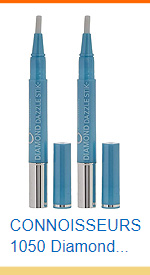

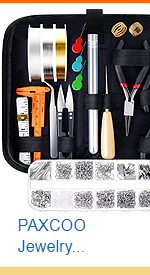
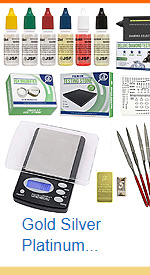



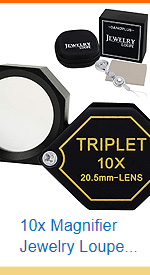
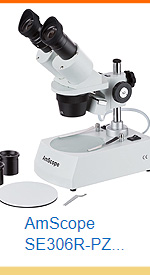




I am from INDIA… I am 21 year old boy…finished my graduation BBA … Now i am interested to do the gemology course… The main problem for me is that i am not fluent in English language… What i can do? Can i eligible for doing this study?
Intersting In Jewelery Field Gemstones & Knowing More , Even Had Experience About Need To Know Today Prices For New Courses 5 Years In Gold Manfucturing KSA Gulf
Ibn El-Walid Ahmed Ali
Dear Ali
There is a GIA(Gemology Institute of America) campus in Dubai. You can visit the web: http://www.gia.com in this regards.
Thanks. Abdul Hai
I want information about diamond courses
I would like to attend School in India. I have had a spiritual drawing to it for years and I would love to take my Gemology Course there.